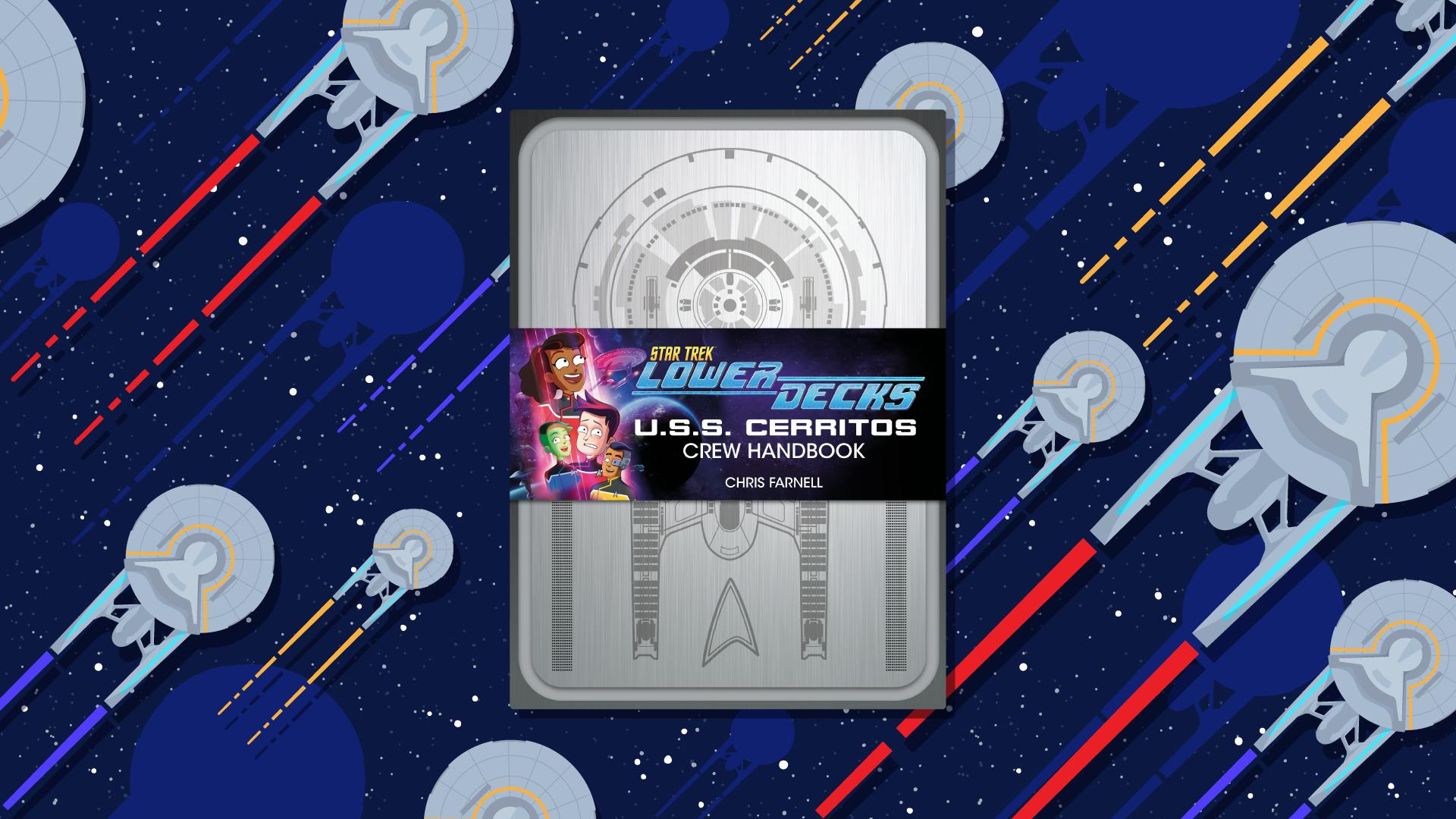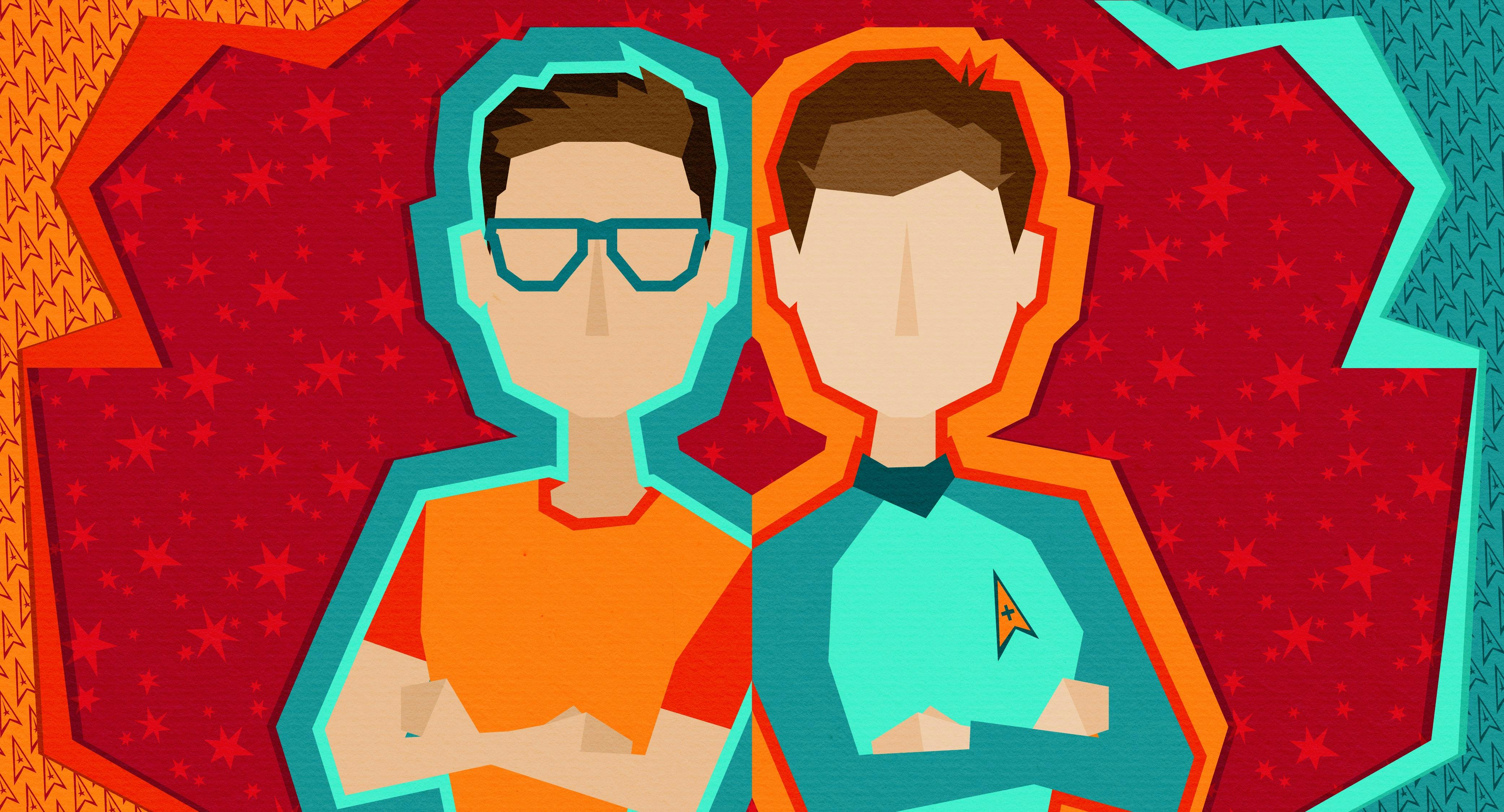Published May 4, 2023
'Valiant' Was Star Trek: Deep Space Nine At Its Darkest
The episode highlights how the pageantry of Starfleet can disguise the painful realities of war and duty.

StarTrek.com / Rob DeHart
I can’t place the exact film or series that first awoke my childhood obsession with space travel; maybe it was always coded in my DNA to look longingly skyward and imagine what adventures could happen there. In contrast to the excitement of Star Wars’ dogfights and Doctor Who’s anarchic sense of adventure, Star Trek promised in its Starfleet crew a teamwork, camaraderie and efficacy that the others lacked, which for a rambunctious and over-energetic child felt really badass.
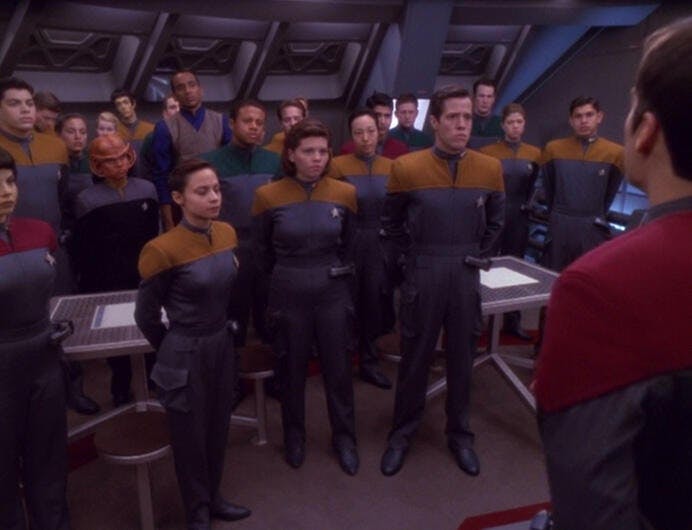
"Valiant"
StarTrek.com
When I imagined captaining my own starship (realistically, I’d be lucky to make it to the Bridge), my crew rarely consisted of seasoned officers but of my own peers — kids like me. Maybe we’d be a little older, at a stretch late teens, but there wouldn’t be any stuffy adults. My crew would be people I could recognize and relate to, the type of folk kids want to have adventures with. It’s easy enough to understand; when you play, you imagine yourself with your friends, without the imposing supervision of adults, in worlds where you can do anything.
The creation of Wesley Crusher capitalized this idea to an extent, offering a surrogate for the next generation of Star Trek’s younger fans. Wesley’s exciting and often dangerous life amongst the stars was one we all wished we could live. In ’s “,” however, this dream is pushed to its logical conclusion, turning it into a nightmare.
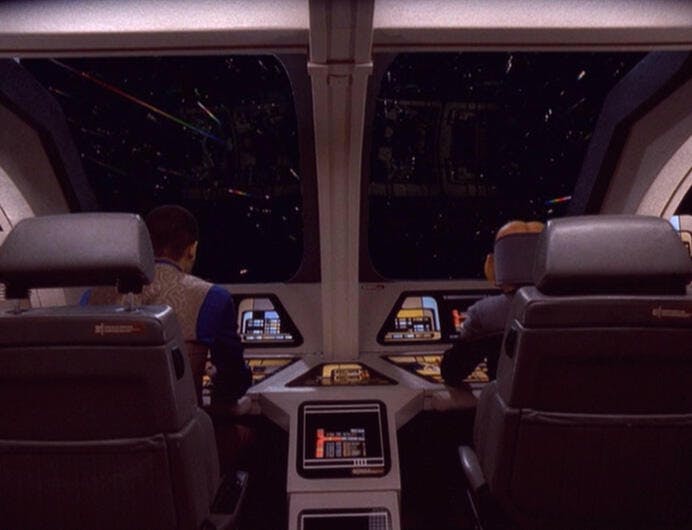
"Valiant"
StarTrek.com
Nog and Jake Sisko are on a diplomatic mission to Ferenginar. While Jake has a tenuous reason for joining, Nog is trying to resist the boyish energy that colors their runabout trip. After a violent skirmish with the Jem’Hadar, they’re beamed aboard the U.S.S. Valiant, a Defiant-class ship used to train elite cadets. The cadets are all that’s left of its crew; their captain and the rest of the adult officers were killed in a Cardassian encounter that severely weakened their warp capabilities.
The new acting captain, Tim Watters, has been leading the cadet-only crew for months behind enemy lines. Watters is made of classic Star Trek captain stuff — charm, discipline, a confidence that stays on the right side of arrogance. He commands strong respect from his young crew, some of whom are only 17 years old. Nog quickly idolizes him, even more so after Watters makes him chief engineering officer. The only one skeptical of the Valiant’s situation is Jake, who’s able to see through the unreasonable demands placed on a young crew. Their mission is to gather intel on a new enemy battlecruiser, and Watters is willing to die trying to complete it.
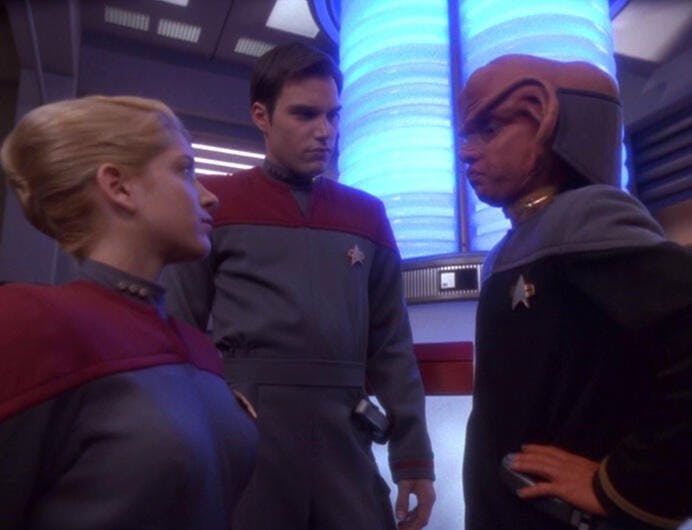
"Valiant"
StarTrek.com
It doesn’t take long for the excitement of your childhood fantasies to lose their glimmer, especially when depicted in the Star Trek series most willing to take the viewer to uncomfortable places. It’s initially exhilarating when you see your dream of a crew made up of young peers, with no boring adults in sight – that is, until you think through their situation. These are unchecked and unprotected youngsters who have ingested all of Starfleet's values without the choice to retreat or liaise with superiors, in a war they believe they must keep fighting until its end or theirs. They are child soldiers, and the pageantry of Starfleet can disguise that painful reality only so much.
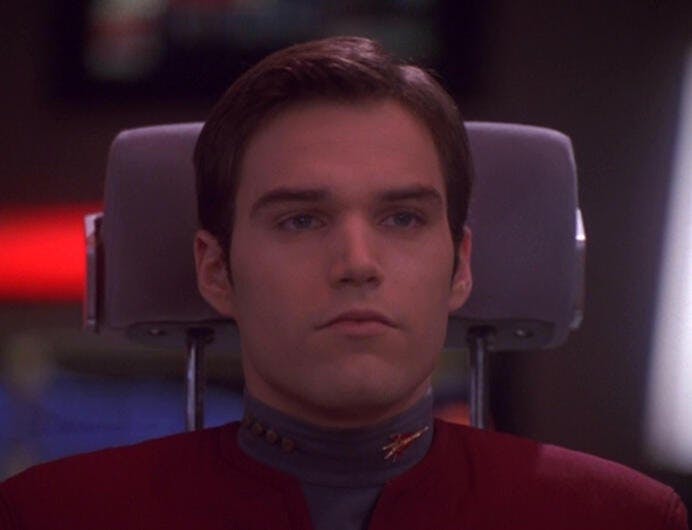
"Valiant"
StarTrek.com
“Valiant” is an episode about duty — the ways it can poison people eager for authority, and how difficult it is to resist cultish leadership, especially without contact to the outside world. Seeing the Red Squad conduct themselves like the pristine crew of the Defiant or Enterprise has an uncanny effect. They act with a confidence and conviction that’s only earned from working through Starfleet ranks, yet they’re only in charge because they’ve been totally separated from that network. Watters commands like he’s giving a performance of Star Trek leadership without the experience to back it up; he’s clearly emulating the ghosts from his training with his former captain. Running the Valiant is like doing the Kobayashi Maru and never being told to stop. Watters certainly thinks his courage and initiative would be commended, but it’s very convenient no higher authority is present to question him. Would they have sanctioned Watters' dangerous attack on the Dominion cruiser?
Kirk, Picard, Sisko — these are all captains who take risks; but with every risk comes the consideration of ethics, and with every captain comes a crew of adults. The U.S.S. Valiant isn’t just manned by young people; they're a select crop of advanced cadets who have clearly internalized how often they’ve been told how unique and capable they are. Seeing his peers excel at their shared ethos is what makes Nog so willing to be absorbed into Watters’ ranks; unwavering duty is the primary way he can valorize himself.
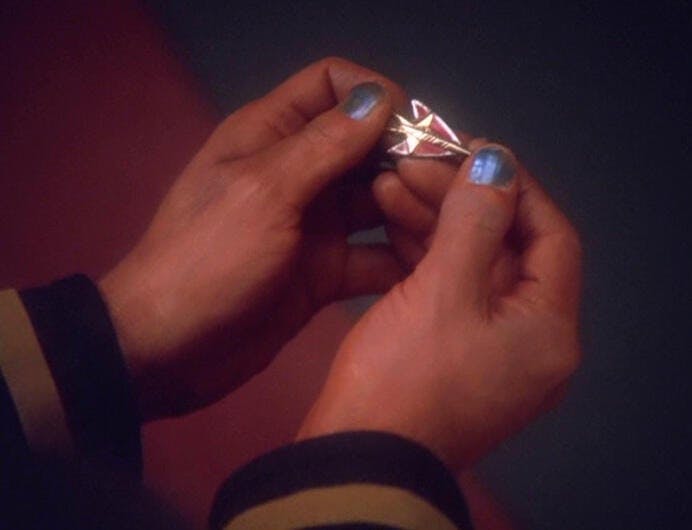
"Valiant"
StarTrek.com
In a way, the Valiant represents so many of Nog’s personal values. He needs it to work, and doesn’t understand Jake’s criticisms of his hasty promotion and instant loyalty. His best friend is an outsider to the one cause the young Ferengi feels elevates him, proclaiming, “I care about something larger than myself!” The gratitude Nog feels at his promotion only fuses himself closer to Watters; he’s unable to see past their shared principles. It’s difficult to shake an ideology once you think it righteous.
Jake’s presence in the episode is a prescient one. He too is surrounded by his peers, but he engages with them, not as a member of Starfleet, but as a fellow adolescent. He’s reprimanded for talking about home with Chief Petty Officer Dorian Collins after their chat makes her homesick; too unprofessional and babyish a concept for any of Watters’ crew. Jake is ostracized by Valiant’s crew for not being “one of [them],” as if he doesn’t himself understand sacrifice and grief on the battlefield — something he experienced at a young age from losing his mother to the enemy. It’s because of Jake that Dorian is reminded of her terror-free youth, and that she can’t be expected to live as an ultra-disciplined, unfeeling officer.
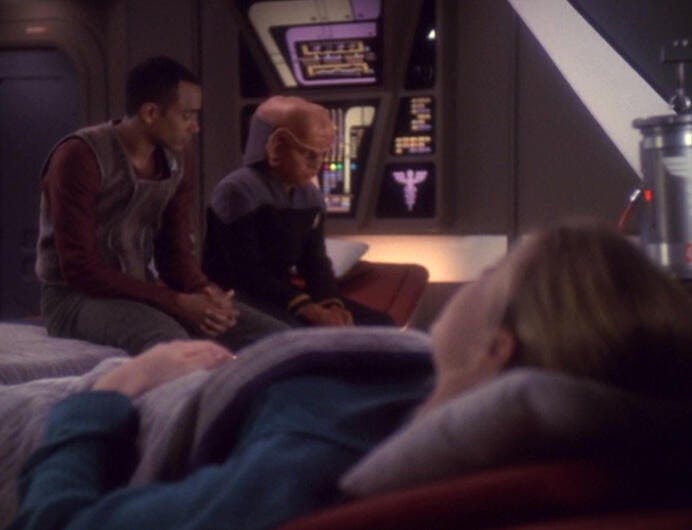
"Valiant"
StarTrek.com
But even by the episode’s end, it’s hard to shake her faith in Watters. Lying in a hospital bed, the only survivor of Valiant’s crew, she insists they did the right thing by following him. “If he failed, it’s because we failed him,” Dorian rationalizes. Jake can’t understand this; and even though Nog disavows Watters’ command, he still holds fast to Starfleet values. The contradiction encapsulated with Nog's words, “He may have been a hero. He may even have been a great man. But in the end, he was a bad captain.” Maybe it’s too complex an issue for the three of them to decipher. After all, they’re just kids.
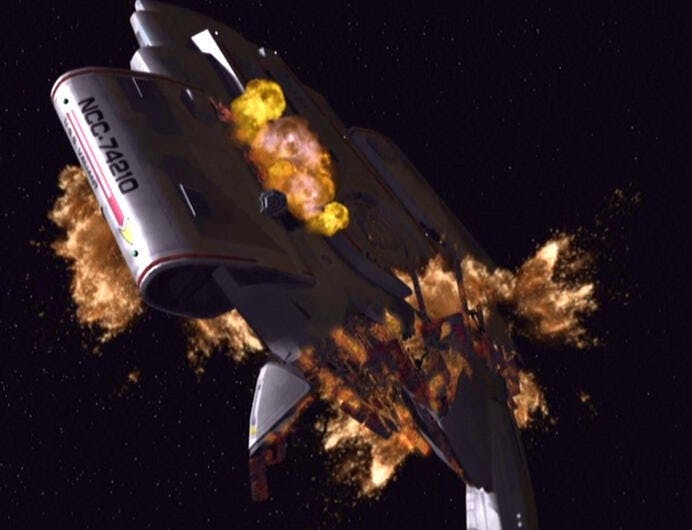
"Valiant"
StarTrek.com
“Valiant” is terrifying because it shows a captain who’s not dangerous because he’s gone insane, or harbors a secret allegiance with the enemy, but because he followed what he had been taught to a terrifying degree. Starfleet put the cadets in danger and did not give them a clear path out should things go wrong, instead instilling in them the idea that they were capable of pulling off the impossible.
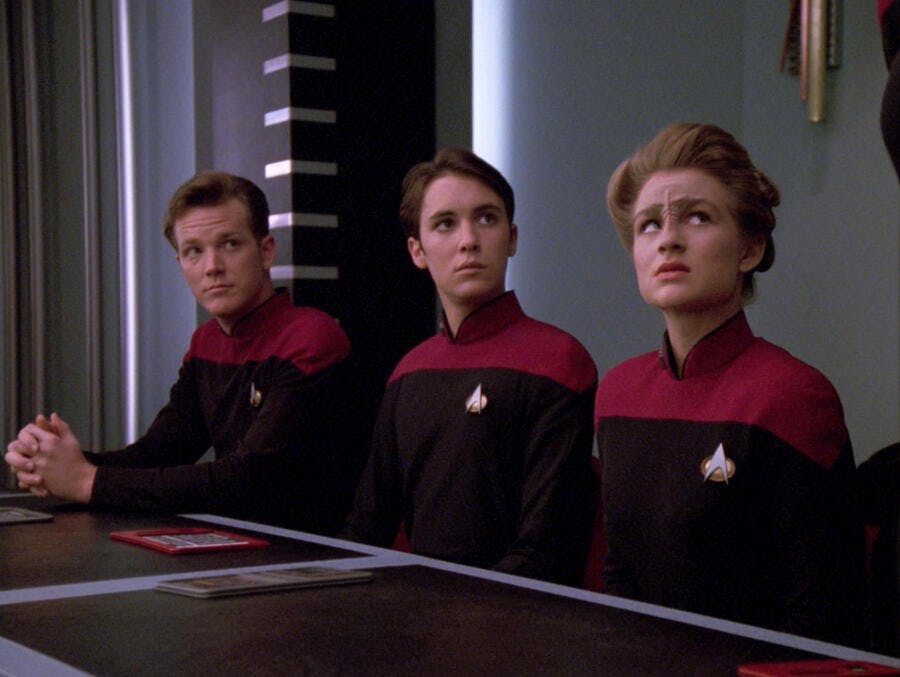
"The First Duty"
StarTrek.com
The dream of flying around with your best friends unburdened by adult authority becomes a distressing concept when you see how fervently young people can commit to an authority they haven’t learned to question yet. The episode brings to mind Wesley Crusher’s crisis in ’s “,” (an episode also written by Ronald D. Moore), where special cadets, in Nova Squadron, act immorally to preserve their reputation in Starfleet. This ethical dilemma is a lot more clearcut than what Red Squad find themselves in — lost in space with only an ideology to keep them alive, one that corrupts its crew more every day. Nova Squadron failed Starfleet, but it was Starfleet that failed Red Squad.

